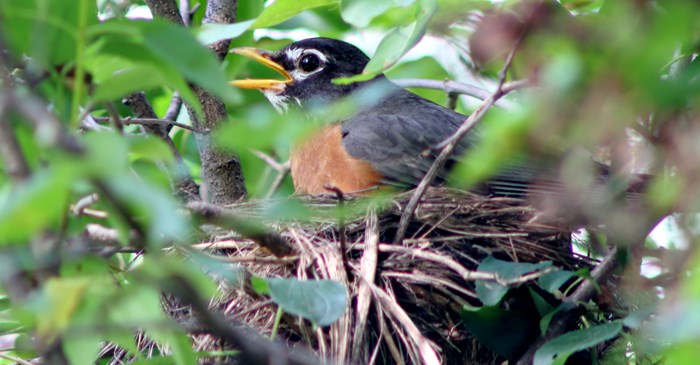If a songbird thinks you're too close to their nest, they have ways of letting you know. Learn to recognize their common defensive tactics, so you can back off and minimize their stress.
3 signs that a bird thinks you’re too close to their nest
Dive bombing: Some species are ready to crank up the aggression when they feel that people (and pets) are getting too close and will actually zoom past your head in a flyby. It’s unsettling, but injuries from scratches and pecks are unlikely.
Scolding: It can be more difficult to pick up on this, because we’re used to the sounds of bird songs and calls. From the bird’s perspective, you’re too close to the nest, so some species will make a series of loud, insistent calls, hoping you’ll pay attention to them instead of their weak and helpless babies.
Flushing: This term is used to describe a bird flying out suddenly from a hiding place in response to someone or something getting too close. If you're walking and a bird seems to fly out from a nearby bush or practically underfoot, you may be dangerously close to a nest! Watch your step and detour away from the site, if you can.
What to do when birds get defensive
- As soon as you are able, leave the area. If necessary, do your gardening and lawn care in briefer stints or change the route of your daily run or walk.
- To protect your head against dive-bombing birds, wear a hat or carry an umbrella.
- If you know where the nest is and want to sneak a peek at those outstretched beaks, pay attention to the timing. Avoid viewings at dusk, early in the morning or on chilly days, because eggs and babies need their parents’ warmth. If the babies are almost fledglings, keep your distance or risk startling them into a too-early exit from the nest.
Luckily, baby birds grow up fast. Just wait it out for a couple of weeks and things should return to normal.
